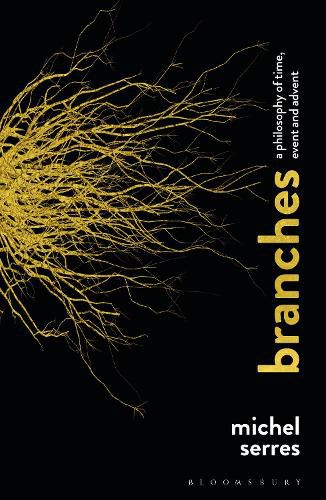Readings Newsletter
Become a Readings Member to make your shopping experience even easier.
Sign in or sign up for free!
You’re not far away from qualifying for FREE standard shipping within Australia
You’ve qualified for FREE standard shipping within Australia
The cart is loading…






Despite being one of France’s most enduring and popular philosophers, Branches is the first English translation of what has been identified as Michel Serres’ key text on humanism.
In attempting to reconcile humanity and nature, Serres examines how human history ‘branches’ off from its origin story. Using the metaphor of a branch springing from the stem and arguing that the branch’s originality derives its format, Serres identifies dogmatic philosophy as the stem, while philosophy as the branch represents its inventive, shape-shifting, or interdisciplinary elements. In Branches, Serres provides a unique reading of the history of thought and removes the barriers between science, culture, art and religion. His fluency and this fluidity of subject matter combine here to make a book suitable for students of Continental philosophy, post-humanism, the medical humanities and philosophical science, while providing any reader with a wider understanding of the world in which they find themselves.
$9.00 standard shipping within Australia
FREE standard shipping within Australia for orders over $100.00
Express & International shipping calculated at checkout
Despite being one of France’s most enduring and popular philosophers, Branches is the first English translation of what has been identified as Michel Serres’ key text on humanism.
In attempting to reconcile humanity and nature, Serres examines how human history ‘branches’ off from its origin story. Using the metaphor of a branch springing from the stem and arguing that the branch’s originality derives its format, Serres identifies dogmatic philosophy as the stem, while philosophy as the branch represents its inventive, shape-shifting, or interdisciplinary elements. In Branches, Serres provides a unique reading of the history of thought and removes the barriers between science, culture, art and religion. His fluency and this fluidity of subject matter combine here to make a book suitable for students of Continental philosophy, post-humanism, the medical humanities and philosophical science, while providing any reader with a wider understanding of the world in which they find themselves.